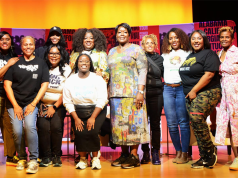After almost eight months of quarantine, face masks, and hand sanitizer, we are now in the middle of two unprecedented events: the COVID-19 pandemic and the first holiday season under measures that has changed how we carry out our family traditions.
The reality is clear; according to a Kaiser Family Foundation’s health tracking poll, two-thirds of the public are worried they or their family will get sick from the coronavirus. These disruptions brought with them some very difficult emotional and mental challenges. Sadly, they are the result of the demands we have all been put under in adapting to the danger of this coronavirus.
You don’t have to be a genius to have known that the mental and emotional toll of this pandemic wasn’t going to be pretty; and it’s not. Think about how it is affecting each of us on a personal level: illness or fear of illness, social isolation, economic insecurity, disruption of routine and loss of loved ones. The impact is real, and we can’t kid ourselves, many of us living with some degree of depression and/or anxiety.
On top of that, we have a generation or two of children and young people who are looking to us to guide them through. Our lives have been turned upside-down, but we must remember that our children and young people are impacted by the stress of their parents and other adults around them. So, if we are struggling with our own mental health during the holidays, you can believe that our young people are impacted as well.
Throughout the history of Blacks in this country, family and community have sustained us, even in the darkest moments of the racial inequities that have always existed. What’s being asked of us now is to do something that is unlike anything we’ve ever thought possible – celebrate the holidays and honor family traditions without being together.
Let’s not make the mistake of thinking that just because the holidays are here, we can just immerse ourselves into them, oblivious to the “wear and tear” of having spent the entire past year in the grips of one of the deadliest pandemics in history. This is especially true if you had a preexisting mental health issue, are a low-income individual, person of color, or close to someone who suffered or died from COVID-19. Enough time has passed for researchers to look at just how bad has this pandemic affected our mental and emotional health.
A Boston University study found that the rates were higher than what we saw after 9/11 or Hurricane Katrina. Yet, unlike 9/11 or Katrina, COVID-19 isn’t something bad that happens, and then we get back to “normal”. It’s not going to work like that, and many of us are hopeful for a way to contain or control the virus; not hoping to return to “normal”. The many ramifications of this virus have made it clear; things can never be like they were before.
The consequences for mental and behavioral health are clear; spikes in interpersonal violence, suicide, and substance abuse. Homicide rates are already upwards of 50 percent than the previous year, prior to the pandemic. Hospitals aren’t seeing a measurable rise in domestic child abuse, but the severity of the injuries that children coming to the emergency room with are far worse and violent than anything seen in the past. The economic impact on many families has led to feelings of frustration and uncertainty in relation to the inadequate basic supplies of food, water, clothes etc.
It’s tough, but we are all going to have to try our best to manage the stress and anxiety of this very different holiday season, under these unimaginable circumstances. The Center for Disease Control and Prevention (CDC) reminds us that the safest way to celebrate the winter holidays is to celebrate at home with people who live with you. Gatherings with family and friends who do not live with you can increase the chances of getting or spreading COVID-19 or the flu.
We must remain vigilant in our understanding and respect for the deadly nature of COVID-19, and keep in mind the things that contribute to the risk of getting and spreading COVID-19 at small in-person gatherings.
The CDC provides some factors in how this pandemic is spreading to inform your decision and acceptance of how things have to be this holiday season: Community levels of COVID-19; exposure during travel; location of the gathering; duration of the gathering; number and crowding of people at the gathering; behaviors of attendees prior to the gathering; behaviors of attendees during the gathering. These are too many things on the list that are out of our control for us to be a responsible decision and determine to maintain our past holiday traditions.
As we all do our best to go through this unusual holiday season – Thanksgiving, Christmas, Diwali, Kwanzaa, Hanukkah, New Year’s, or whatever (or however) you and your family celebrated in the past – I’d like to “preach what I practice”: I may not be able to spend this holiday with my loved ones this year, but I’m willing to spend this time apart so we can be with them next year and the year after that.
Glenn Ellis, MPH is a Visiting Scholar at The National Bioethics Center at Tuskegee University and a Harvard Medical School Fellow in Research Bioethics and Writing. He is author of Which Doctor? and Information is the Best Medicine. For more good health information visit: www.glennellis.com




